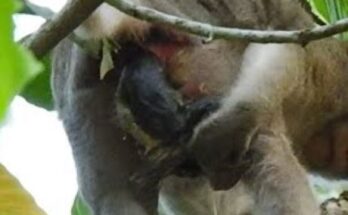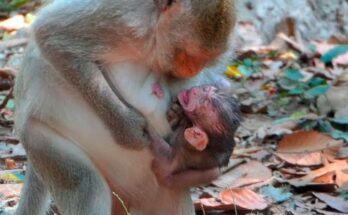In the complex social structures of monkey troops, hierarchy and dominance play crucial roles in maintaining order and stability. However, when a new leader emerges, not all members of the group may readily accept or recognize the new “king.” This phenomenon reflects the intricate dynamics of primate societies, where individual preferences, loyalties, and experiences shape behavior.
Monkeys, like many social animals, operate within a framework of dominance hierarchies. The alpha, or leader, holds the highest position, enjoying privileges such as priority access to food and mates. Leadership changes can occur due to a challenge from a rival male, aging, or the sudden death of the reigning alpha. When a new leader ascends, the transition is not always smooth or universally accepted.
The reluctance of all monkeys to recognize a new king often stems from residual loyalty to the previous leader. Members of the group, particularly females or subordinates who were closely allied with the former alpha, may resist the authority of the newcomer. They might display behaviors such as avoidance, refusal to groom the new leader, or even subtle forms of defiance. This resistance can weaken the new leader’s grip on power, making the initial phase of their reign precarious.
Additionally, younger males who were allies or subordinates to the former leader may see the transition as an opportunity to challenge the new alpha themselves. Their reluctance to recognize the new leader is less about loyalty and more about ambition. These challenges often result in further conflicts, as the social structure reorganizes itself. In some cases, the new alpha may have to repeatedly assert dominance through displays of strength or aggression to consolidate power and gain broader acceptance.
Behavioral scientists have also observed that not all monkeys are equally invested in the hierarchical structure. Some individuals, particularly those lower in rank, may adopt a neutral stance during leadership transitions. For these monkeys, the identity of the leader may have less direct impact on their day-to-day survival, so they may remain indifferent until the group stabilizes under new leadership.
Interestingly, cultural factors within monkey groups can also influence acceptance of a new leader. Some troops have been observed to have traditions or norms that affect how leadership transitions unfold. For example, a more cohesive group may rally around a new leader more quickly to ensure collective stability, while fragmented groups may experience prolonged periods of discord and resistance.
The dynamics of non-recognition can also have ripple effects on the troop as a whole. A lack of unity around the new leader can lead to increased internal conflicts, reduced cooperation in foraging, and heightened vulnerability to external threats, such as predators or rival groups. The inability of a new leader to establish their authority quickly can therefore have serious consequences for the survival and well-being of the entire group.
In conclusion, the phenomenon of monkeys not recognizing a new king highlights the complexities of social behavior and leadership in primate societies. It underscores the importance of trust, loyalty, and social cohesion in maintaining stability. Understanding these dynamics provides valuable insights into the parallels between primate and human societies, where leadership transitions often face similar challenges of acceptance and legitimacy.
4o


